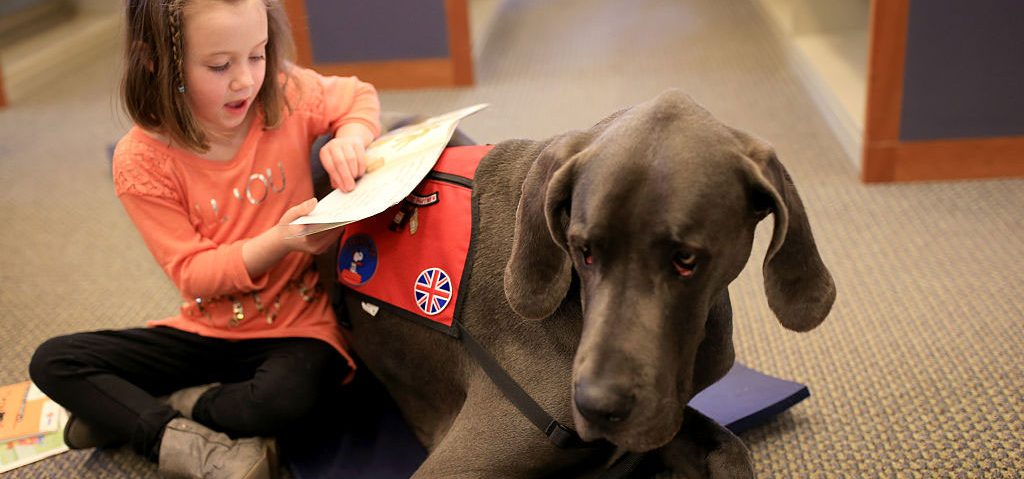Therapy Dogs for Children with Special Needs

Pets have positive effects on children with special needs, and therapy dogs in hospitals, schools, and homes make a big difference. Here's what you should know.
When 12-year-old Ally Gillen was hospitalized, she missed her dog, Angel. Gillen had juvenile dermatomyositis, an extremely rare autoimmune connective tissue disease that effects one in one million children. She spent seven weeks at Children’s Hospitals and Clinics of Minnesota. Therapy dogs were the key to her recovery.
YOU MIGHT ALSO LIKE: Raising Healthy Children
“She was so ill that she couldn’t lift her head off the pillow,” Heather Gillen, Ally’s mom, said. “When the occupational therapists came into her room and tried to get her to stretch, she cried because she was in such pain until the therapist brought in a therapy dog.”
That’s when they saw a change. Ally perked up.
The occupational therapist placed a small dog on Ally’s shoulder so she could pet him. Then she’d move the dog to her other side so Ally had to stretch to touch him. This was a major challenge because she had trouble moving her body.
“I didn’t really think about petting the dog,” Ally said. “I was so happy to have a dog nearby that I just reached for him.”
The therapy dogs in the program had such a calming effect on Ally that she started to get better. Another therapist brought in a different therapy dog with a few sets of clothing. “By dressing the dogs, she used her motor skills,” her mother said. “She could snap snaps, button, and zip the clothes.”
It took several months for Ally to regain movement with ease so she could return home. Today, she is fully recovered and believes the therapy dogs helped her get well. She and her mom worked with a professional dog trainer to teach Angel to become a therapy dog. The three of them visit the hospital and bring cheer to other children.
Interacting with pets has positive effects on children and adults. “Children with autism benefit from interacting with dogs because dogs provide unconditional, nonjudgmental love and companionship,” said Gretchen Carlisle, PhD, a research fellow with the Research Center for Human-Animal Interaction at the University of Missouri College of Veterinary Medicine.
At The Calais School in Whippany, N.J., Cali, a Rhodesian ridgeback, works as the first cortisol detection dog in a school for children with special needs. Cali greets the students at the start of each day, and she can detect when a child is about to become stressed. She helps keep the students calm. The Calais School also has two other service dogs on staff.
Therapy dogs in hospitals, schools, and homes really do make a difference. If you are considering getting a therapy dog, Carlisle believes that parents should take into account their child’s sensitivities when choosing one.
Look for a trained therapy dog who will interact and bond with your child. Talk to your child’s therapist or pediatrician for suggestions. The therapy dogs at The Calais School were trained by Merlin’s Kids, a non-profit organization that trains dogs to work with special needs children.
According to Carlisle, therapy dogs can lower stress, blood pressure, and heart rate in children. “Petting a dog is relaxing,” she said.
If you are considering getting a therapy dog for your special needs child, it’s important to realize that taking care of a pet is a full-time commitment. The pet will be in your life for 12 to 15 years. Make sure your child is willing to help train, play, and care for the dog.
Another thing to consider is the size of the dog. If you live in an apartment, you’ll want a smaller dog than if you live in a big house and own land.
You will also need to buy food, an occasional toy, leashes, and collars for your dog. The dog should have veterinary checkups once a year.
Getting a therapy dog for your child with special needs is a big step. Make sure your child and everyone in your family is on board.
Updated:
December 01, 2023
Reviewed By:
Janet O’Dell, RN